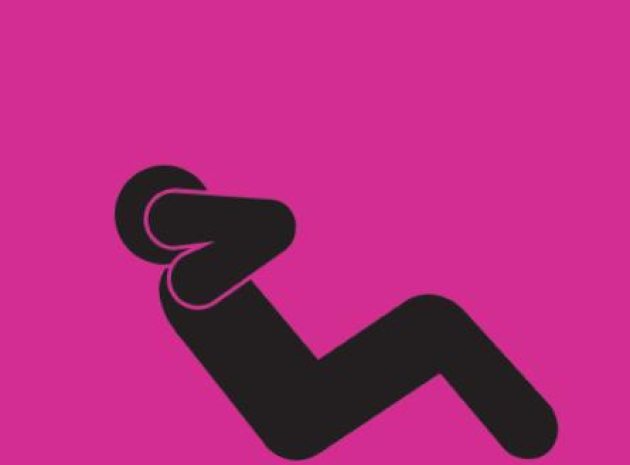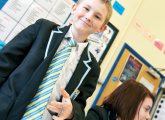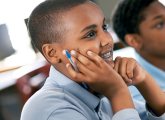In her speech to students at King Solomon Academy in London on 15 June, Education Secretary Nicky Morgan announced that she’d like to see all pupils starting Year 7 this September to study the English Baccalaureate (EBacc) subjects when they reach their GCSEs. In practice, this means that she would like to see our newest cohort of secondary school students getting a good GCSE pass in eight core academic subjects – including English, mathematics and six other EBacc subjects (sciences, computer science, history or geography and languages).
As Nicky Morgan admitted, it’s an ambitious goal. And in order to encourage secondary schools to embrace this new policy, the government is also rolling out new accountability measures from 2016 (known as Progress 8). The government argues that this approach will see all students, regardless of their social background, getting a good grounding in academic subjects, making sure that doors don’t unwittingly close on future opportunities – whether for apprenticeships, high-paying jobs or Russell Group university places.
Going equipped
It is true that the range of subjects on offer under the EBacc will mean that all students will have as much choice as possible going forward to further studies and they will be well-equipped in terms of career skills too. For example, computer science is now counted as the ‘fourth science’ with as much importance as biology, chemistry and physics – which is great for the modern job market and should encourage more girls to enter into this traditionally male-dominated area.
Schools will receive double weighting in the new accountability measure for students who study English literature as well as English language, which means that students from all backgrounds and abilities will have the chance to study culturally enriching writers such as Shakespeare. Obviously the prospect of reading Macbeth and other classics can be pretty daunting for students who have never had the chance to go to the theatre or who haven’t had much exposure to classical literature. But there are plenty of fantastic resources available for teachers and their pupils, especially drawing on digital technology, that are designed to inspire and motivate pupils of all abilities. For example, Cambridge University Press English has included short videos in the digital editions of our English school resources that have been written and directed by English teachers and that really bring literature to life – particularly for reluctant readers who may respond better to learning via audio or visual media rather than the printed page. (ow.ly/QEn2p).
Developing together
There are certainly challenges ahead for teachers and schools adapting to the EBacc. While supporters of the government’s policy will argue, for example, that studying a modern foreign language to GCSE level will help students to become global citizens, detractors will point out that it will be difficult to resource this policy shift, as the number of trained language teachers is in decline. Equally, criticism has been levelled at the lack of specialised teachers who can teach our children about programming and coding. There are no easy answers to some of the challenges that lie ahead – although there are certainly plenty of excellent resources available for budding computer scientists and their teachers (including a free Massive Open Online Course, or MOOC, created by the Cambridge-based partnership of exam board OCR, Cambridge University Press and the Raspberry Pi Foundation to support teachers: http://ow.ly/QEn5s).
Cambridge University Press is keen to support students and teachers in the transition to the new national curriculum. We have developed Brighter Thinking Forums, bringing members of our UK Advisory Board together with students and teachers to encourage innovation, engagement and inspiration by learning from one another through oneday workshops across the country. It’s an opportunity for students to experience a range of real world business case activities and scenarios to help develop their confidence, communication, media and business skills; find out more at http://ow.ly/QEnc9
Many critics of the EBacc complain that the focus has moved away from subjects like arts and music to more traditionally academic subjects. And it is certainly true that there will be less space in busy school timetables for extra-curricular activities. However, as Nicky Morgan argued in her speech at the King Solomon Academy, there shouldn’t need to be a choice between an academic or an arts-based curriculum. It’s possible to do them both and do them well – so that the maximum number of pupils stand to benefit, rather than just the elite few.










